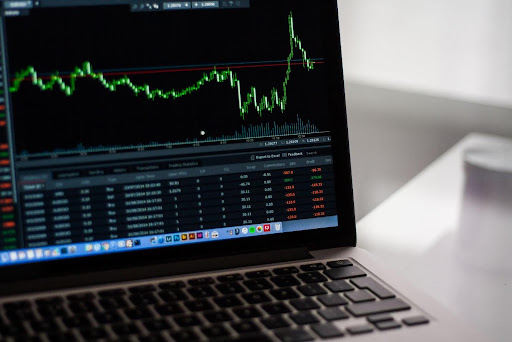
There are many investment vehicles one can use. One of which you’ve probably heard spoken about on financial news segments on TV or read about in the financial pages of a newspaper is the futures market. It is quite a unique investment vehicle and here we’ll look at what are futures and how you trade with it.
It should be noted that none of what is below is financial advice, but instead, is content for educational purposes.
What are Futures?
To answer the question of what are futures we need to understand that they are a type of derivative contract. The contract states that the buyer purchases a specific commodity asset or security on a certain date for a specific price.
Upon the expiration date of the contract, the buyer purchases the underlying asset specified in the contract and the seller delivers it. This is an obligation of the contract. Futures differ from options where the contract becomes worthless on expiration.
Futures are traded on the CME Group and specific future market exchanges and require a brokerage account.
Margin and Leverage
The futures market works on leverage and margin and although the initial outlay tends to be less than other types of trading, the risks are higher too. So let’s explore this in more depth.
Working through your broker, you take out an open position at a set price which is your margin. Once the contract is entered into, the total amount at expiration minus your margin is your leverage. Bear this in mind.
Depending on the performance of the underlying assets, you may be required to pay a maintenance margin to cover losses. So should the total value be $45,000 and you put down $5000 margin. The total value of the contract falls by $2000, your broker will ask you to top up the margin by a corresponding amount.
There are strengths and weaknesses with margin trading in futures terms. The fact you can open a position for low outlay is a strength, but conversely, you are exposed to high risk depending on contract performance, since you can end up losing more than your original investment. Something to think about.
What are Futures Used for?
Traders find futures appealing as they can use it for either hedging, which is effectively risk management, or speculation.
- Hedging – A company or institutional investor can use a futures contract to protect commodity price at time of expiration. As such, they can ensure the price won’t fluctuate in a portfolio or their operations. For example, a farmer who wants to guarantee the wheat price come harvest time can use a futures contract as a seller to ensure the price received is what he or she wants.
- Speculation – As futures are mostly liquid contracts they can be bought or sold anytime prior to expiration. This makes them appealing to investors who want to use market conditions to make profit and have no wish to own an underlying asset. Providing they buy or sell before the expiration date of a contract they have no obligation to either purchase the underlying asset or provide it.
Speculative investors often scour futures market news outlets to get a handle on market conditions and use other factors such as inflation and world events to make their investment choices.
For the most part, speculation is why some traders find the futures market appealing. They can use their knowledge of the market to make profit through predicting where price is heading in relation to a commodity, financial product, or index.
Exchange traded funds (ETFs) can also be used in futures contracts and although futures have risks they have benefits that cannot be realised in the equities markets.
Let’s take a look at some of them in more detail.
Diverse Options
Futures markets allow you to gain access directly to an underlying asset rather than have secondary exposure to it as offered by stocks. Some assets can only be accessed via the futures market and you can price protect assets to some degree and as such protect your portfolio or operations.
Tax
In most jurisdictions, tax is more favourable to futures than other forms of investment. Futures tend to be taxed on a 60% capital gains / 40% income tax basis rather than 100% income tax for shares traded in the first year.
If you understand the risks and are looking for a good investment vehicle, futures markets may be the one that demands your full attention.
Video – What is the Futures Market?
This video, from Marketing Business Network, our sister channel on YouTube, explains what ‘The Futures Market’ is using easy-to-understand language and examples.
Interesting Related Article: “What Investors Should Know Before Buying a Triple Net Leased Investment Property “
